Find Help
More Items From Ergsy search
-
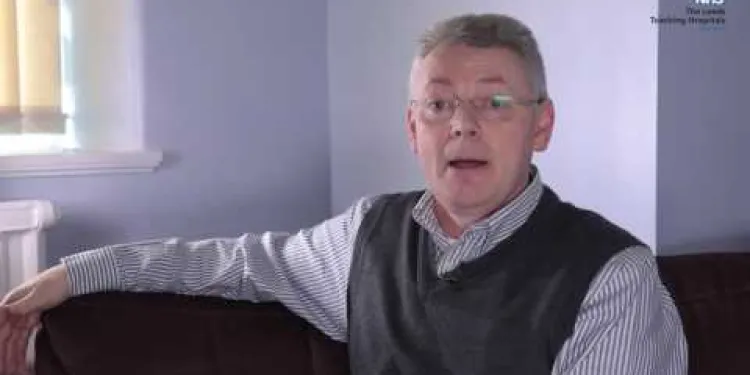
Mark Lancaster Patient Experience Leeds Endoscopy
Relevance: 100%
-
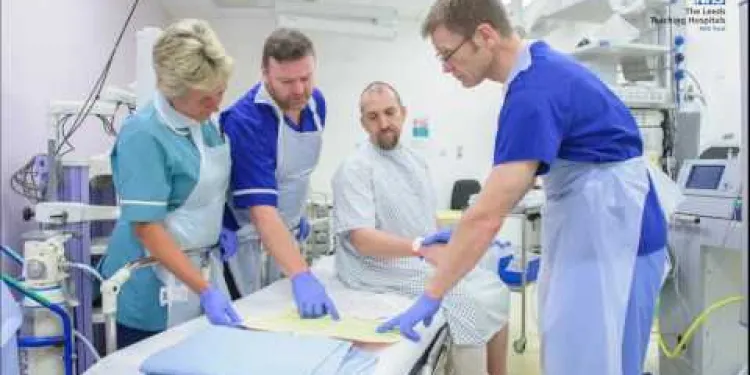
Endoscopy Introduction - The Patient Journey
Relevance: 84%
-
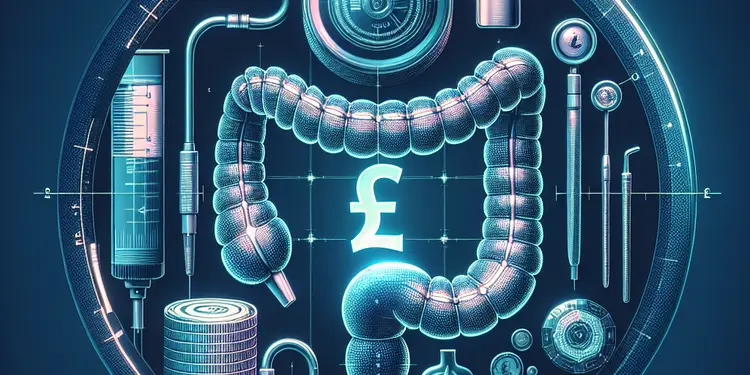
What is an endoscopy?
Relevance: 74%
-
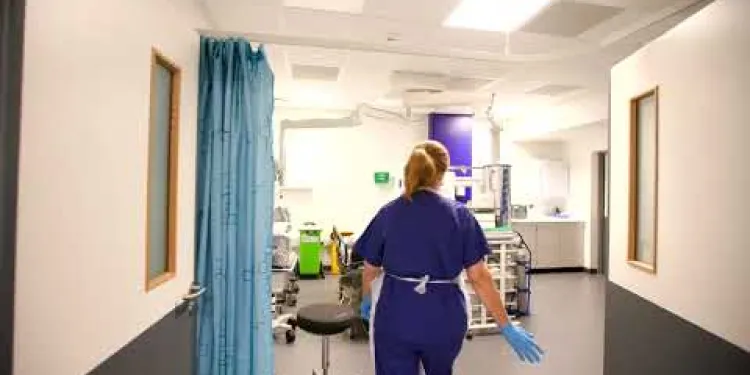
Endoscopy Unit
Relevance: 69%
-
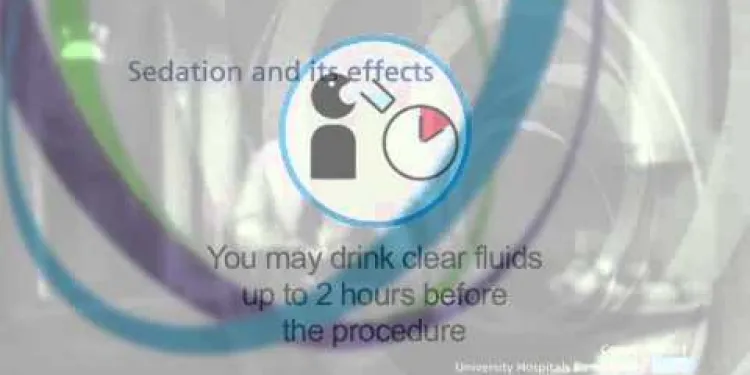
Endoscopy video preview
Relevance: 68%
-
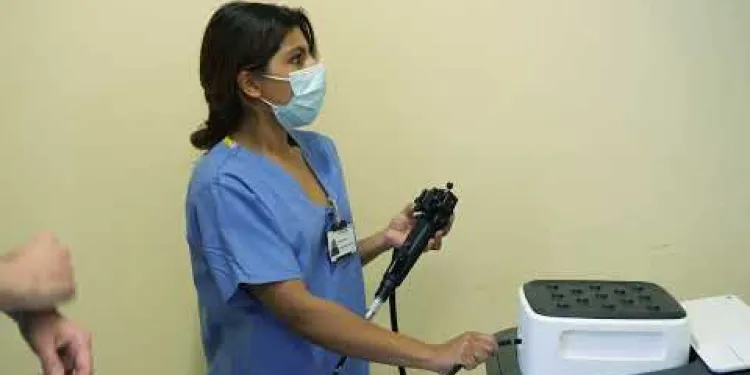
MTW Endoscopy service and training hub
Relevance: 65%
-
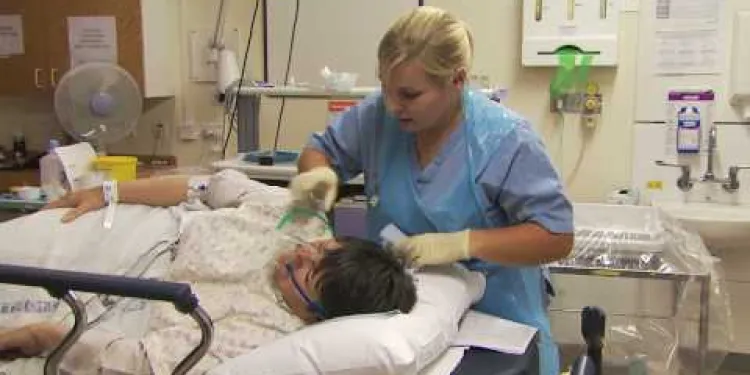
Bournemouth Digestive Diseases Centre: Endoscopy Procedure
Relevance: 62%
-
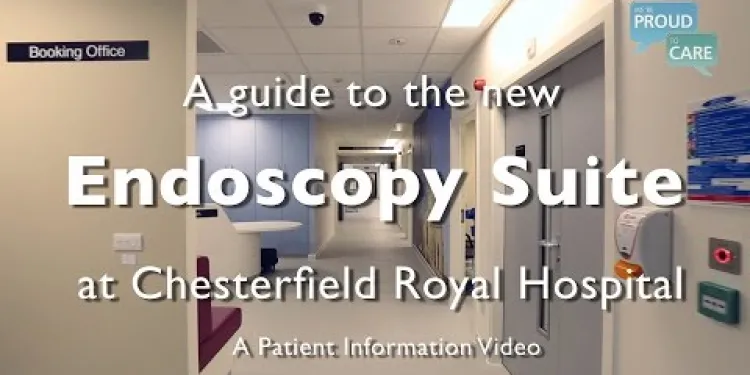
A guide to the new Endoscopy Suite at Chesterfield Royal Hospital NHS Foundation Trust
Relevance: 60%
-
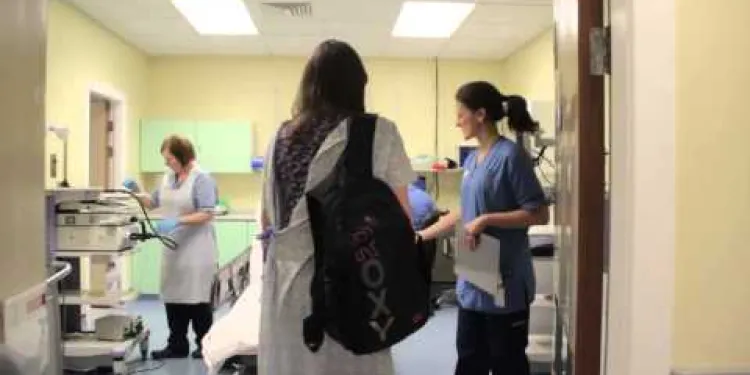
Your Visit to the Endoscopy Unit at NHS Tayside
Relevance: 59%
-
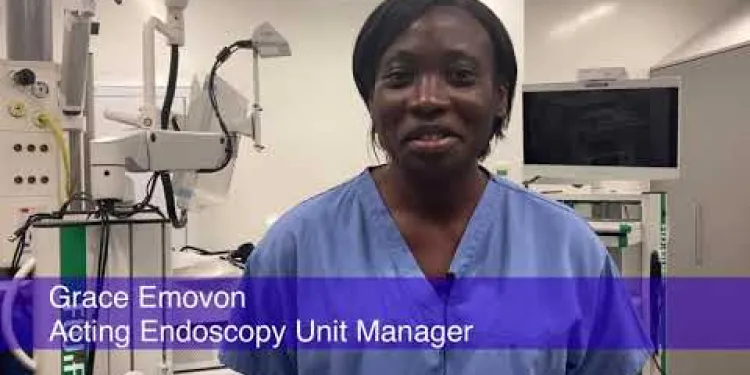
Coming to the Endoscopy Unit at Harrogate District Hospital
Relevance: 58%
-
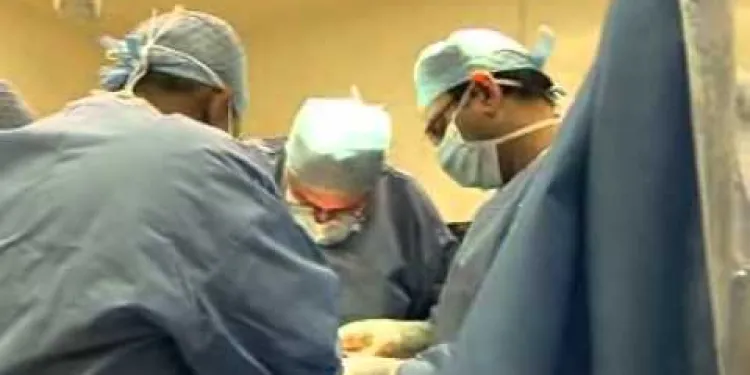
Liver transplant - Patient experience - Part 1 (Colin)
Relevance: 47%
-
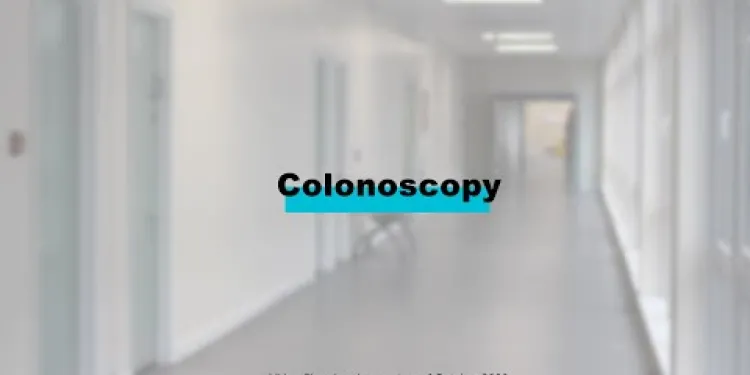
Endoscopy Procedures | Colonoscopy
Relevance: 46%
-
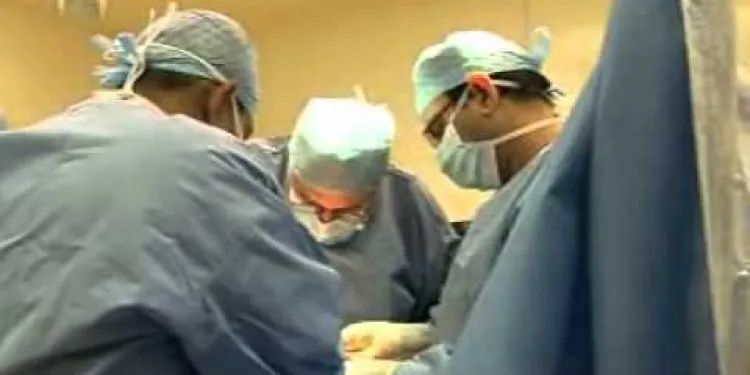
Liver transplant - Patient experience - Part 2 (Lynne)
Relevance: 45%
-
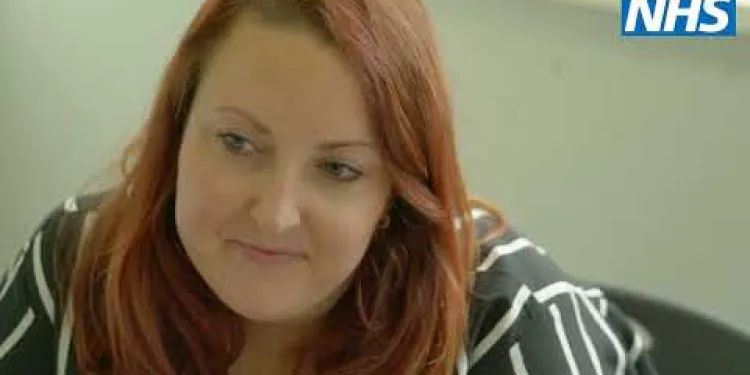
Sickle cell patients share their experiences with the last NHS Chief Executive Amanda Pritchard
Relevance: 37%
-
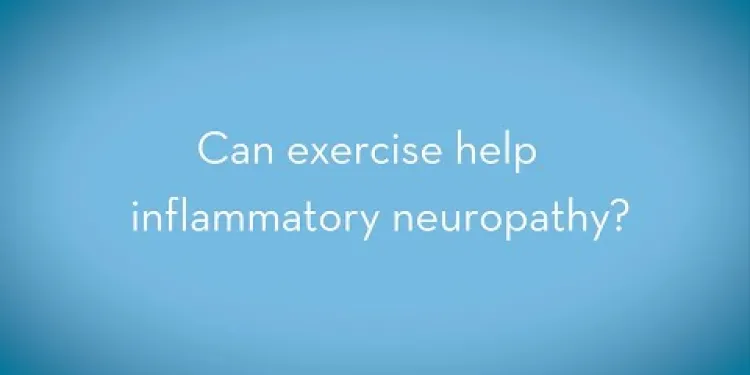
Exercise in patients with a neuropathy
Relevance: 32%
-
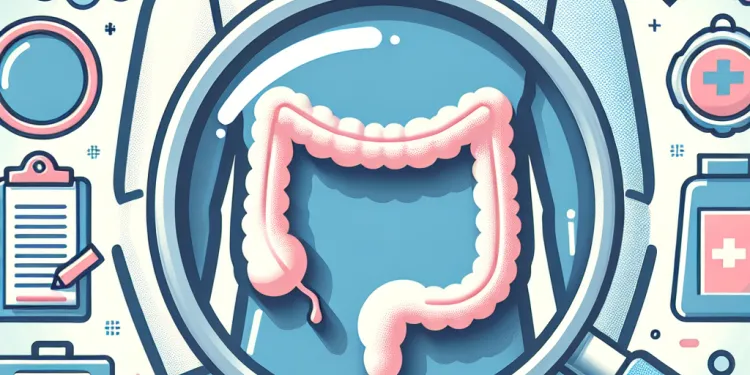
How is Crohn's disease diagnosed?
Relevance: 32%
-
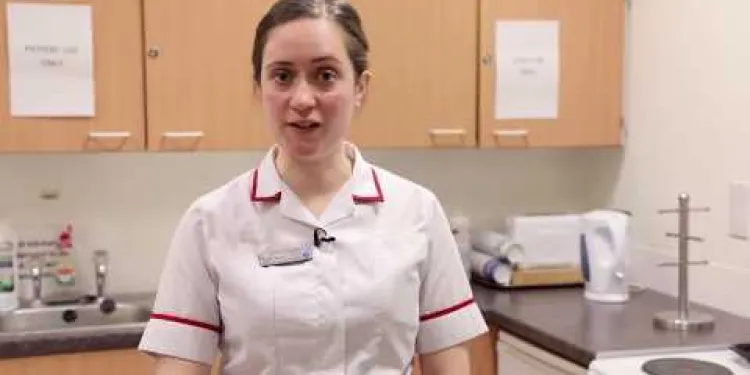
Stroke - Speech and Language Therapist's Experience
Relevance: 31%
-
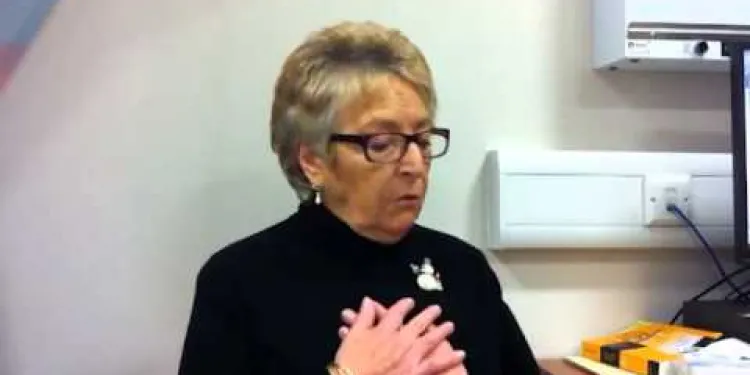
Neuroendocrine tumour patient video
Relevance: 31%
-
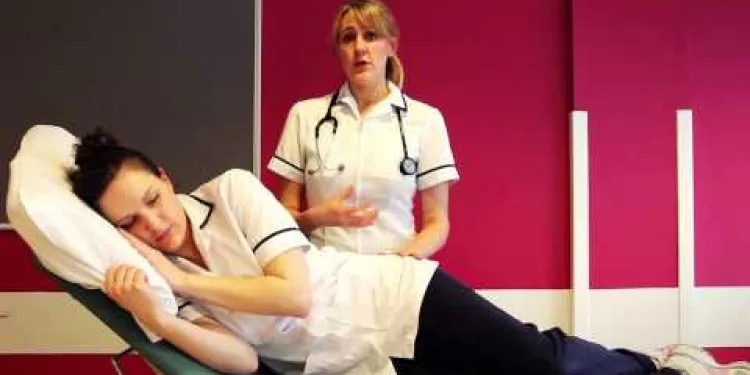
Positioning for Breathless Patient
Relevance: 31%
-
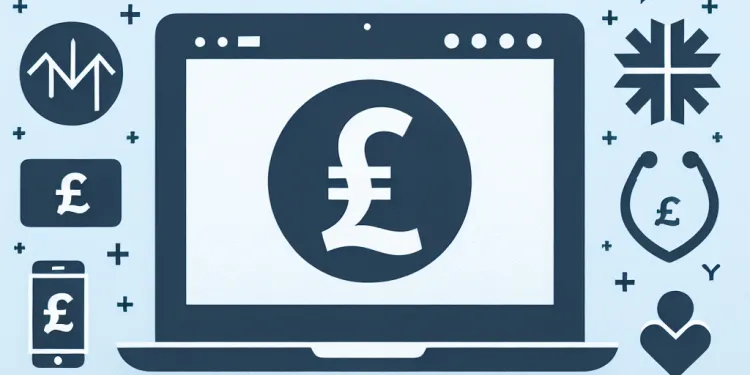
How important is work experience for entering a nursing program?
Relevance: 30%
-
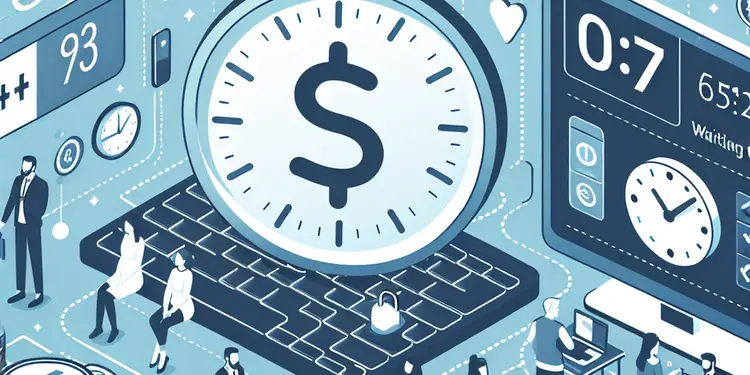
Can online patient forums provide reliable information on waiting times?
Relevance: 29%
-

Can technology aid in the care of Alzheimer's patients?
Relevance: 29%
-

Can fathers experience postnatal depression?
Relevance: 29%
-

Is prior experience required to work at the National Trust?
Relevance: 29%
-

Are there online support services for prostate cancer patients on the NHS?
Relevance: 28%
-

What support is available for carers of Alzheimer's patients?
Relevance: 28%
-
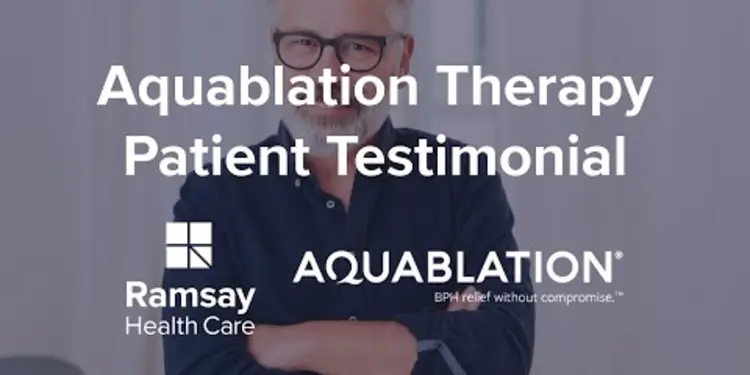
Paolo Fattore Aquablation Patient Testimonial
Relevance: 28%
-

What should I do if I experience problems with my Turkey Teeth?
Relevance: 28%
-

Assessing the stroke patient
Relevance: 28%
-
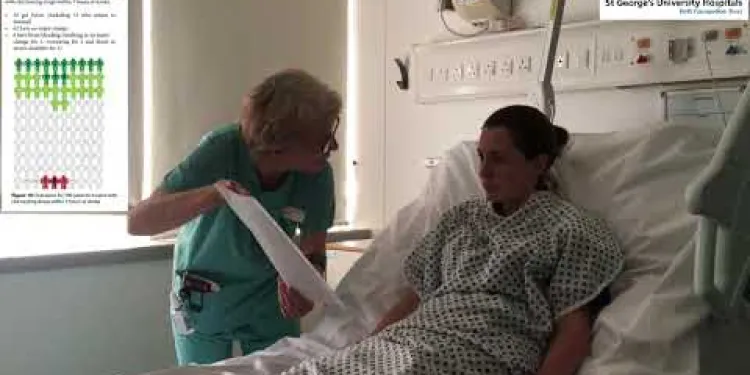
Gaining consent from stroke patients
Relevance: 28%
-
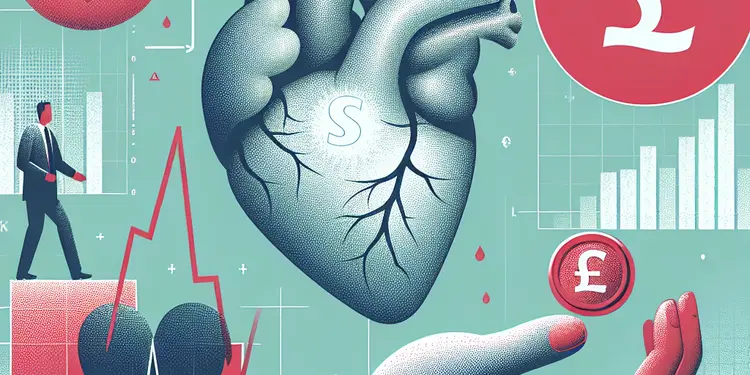
What should I do if I experience symptoms of heart failure?
Relevance: 27%
-

Are virtual wards suitable for elderly patients?
Relevance: 27%
-
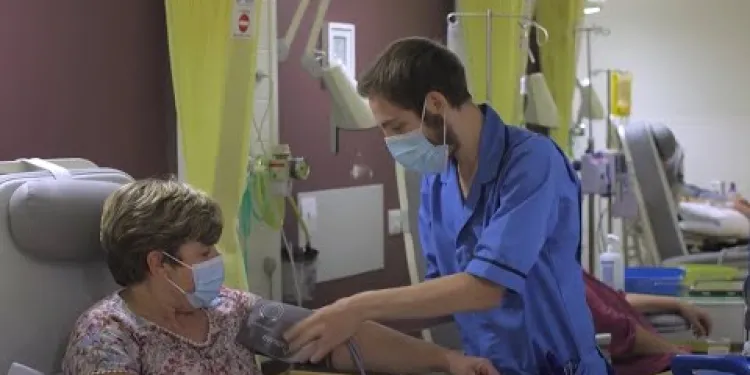
Chemotherapy - the patient journey
Relevance: 27%
-
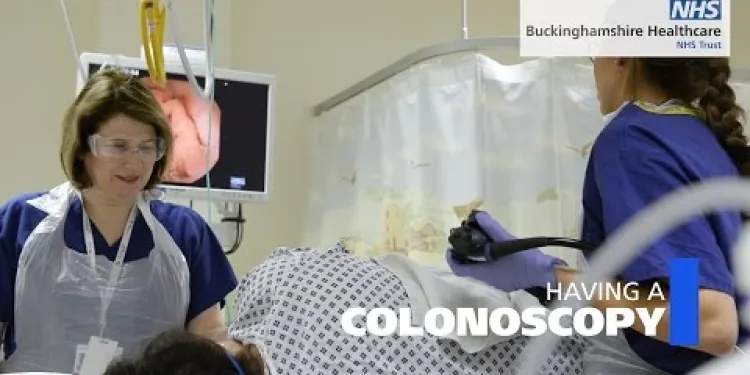
Having a colonoscopy in hospital - Patient Guide
Relevance: 27%
-
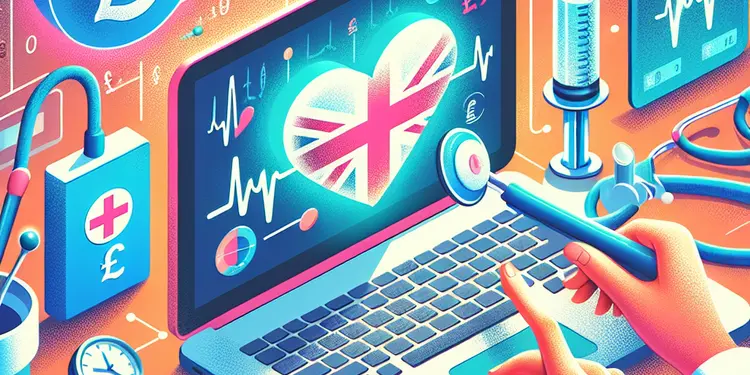
Will I experience side effects from the COVID jab?
Relevance: 27%
-

How important is self-care for carers of Alzheimer's patients?
Relevance: 27%
-

What types of exercise are beneficial for bowel cancer patients?
Relevance: 27%
-

What is self-testing for eye patients?
Relevance: 27%
-
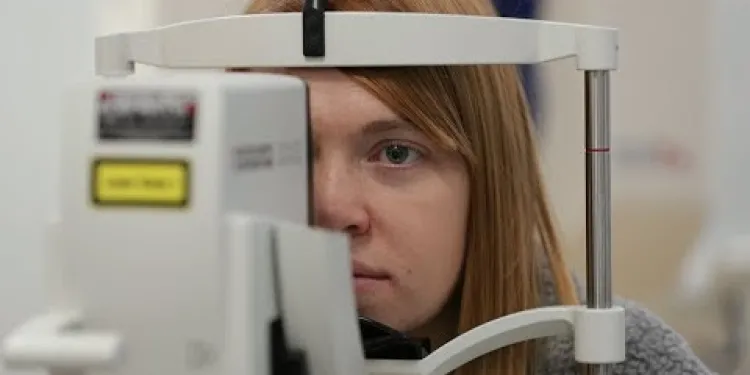
Patient voices in type one diabetes - I would have done things differently.
Relevance: 27%
-
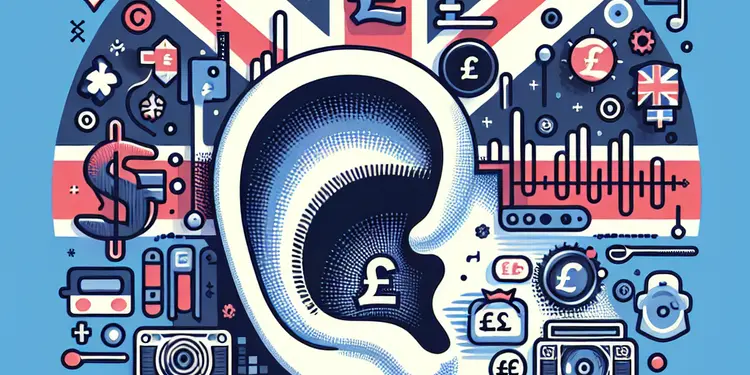
What should I do if I experience sudden tinnitus?
Relevance: 26%
Mark Lancaster Patient Experience Leeds Endoscopy
Introduction to Leeds Endoscopy Services
Endoscopy is a critical procedure used to diagnose and treat conditions within the human body. At Leeds Teaching Hospitals NHS Trust, endoscopy services are provided to ensure patients receive timely and accurate diagnoses. Mark Lancaster, a recent patient, shared his experience to help others understand what to expect during their visit.Pre-Procedure Preparation
Prior to undergoing an endoscopy, Mark received comprehensive instructions on how to prepare. This included dietary restrictions and fasting requirements to ensure the procedure's success. He mentioned the importance of following these instructions closely to avoid any complications. The hospital also provided clear guidelines and a helpline number for any queries.Arriving at Leeds General Infirmary
On the day of the procedure, Mark arrived at Leeds General Infirmary, where he found the check-in process smooth and efficient. The staff were welcoming and provided him with all necessary information about what would happen next. He appreciated the calm and professional environment, which helped ease his anxiety.The Endoscopy Procedure
During the endoscopy, patients are often sedated to minimize discomfort. Mark described the medical team as highly skilled and compassionate, explaining every step beforehand. The procedure itself was quick, and due to sedation, he felt minimal discomfort. The staff constantly monitored his vital signs and ensured he was comfortable throughout.Post-Procedure Care
After the endoscopy, Mark was taken to a recovery area where he was monitored until the effects of sedation wore off. The nursing staff provided excellent care, ensuring he was comfortable and addressing any concerns he had. They provided him with post-procedure guidelines and dietary advice to follow for a smooth recovery.Mark's Overall Experience
Mark Lancaster's overall experience at Leeds Endoscopy was highly positive. He commended the professionalism and empathy demonstrated by the medical and support staff. He felt well-informed and cared for at every step, which significantly reduced his anxiety. Mark encouraged others who might be apprehensive about undergoing an endoscopy to trust the capable hands at Leeds Teaching Hospitals NHS Trust.Conclusion
Endoscopy can be a daunting prospect, but experiences like Mark Lancaster’s highlight the importance of a supportive and professional healthcare team. Leeds Teaching Hospitals NHS Trust ensures that every patient receives top-notch care and attention, providing a reassuring experience for all.Mark Lancaster Patient Experience Leeds Endoscopy
Introduction to Leeds Endoscopy Services
Endoscopy is a medical test to see inside the body. Leeds Teaching Hospitals NHS Trust does this test to help find and treat health problems. Mark Lancaster, a patient, shared his story to help others know what happens during a visit.Pre-Procedure Preparation
Before the test, Mark got clear instructions on how to get ready. He had to eat certain foods and not eat or drink before the test. Following these instructions is very important. The hospital gave him a number to call if he had questions.Arriving at Leeds General Infirmary
On the day of the test, Mark went to Leeds General Infirmary. Checking in was quick and easy. The staff were friendly and told him what to expect. This made Mark feel calm and less worried.The Endoscopy Procedure
During the test, Mark was given medicine to help him relax. The doctors and nurses were kind and explained everything. The test did not take long, and he did not feel much pain because of the medicine. The staff watched him carefully to make sure he was okay.Post-Procedure Care
After the test, Mark went to a recovery room. Nurses took care of him until the medicine wore off. They gave him advice on what to eat and how to take care of himself after the test.Mark's Overall Experience
Mark's experience at Leeds Endoscopy was very good. He praised the staff for being professional and kind. He felt informed and cared for, which made him feel less anxious. Mark encouraged others to trust the Leeds Teaching Hospitals NHS Trust.Conclusion
Endoscopy can be a little scary, but stories like Mark’s show how good care can make it easier. Leeds Teaching Hospitals NHS Trust makes sure all patients get the best care and feel reassured.Frequently Asked Questions
What is an endoscopy?
An endoscopy is a medical procedure where a long, thin tube with a camera is inserted into the body to examine the interior surfaces.
What should I expect during my endoscopy procedure?
During an endoscopy, you will typically be sedated for comfort. A specialist will insert an endoscope via your mouth or another entry point to examine internal organs.
How long does an endoscopy take?
An endoscopy usually takes between 15 to 45 minutes, although this may vary depending on the type of endoscopy and the purpose of the examination.
Will I be awake during the endoscopy?
Most patients are given a sedative and possibly a local anesthetic, so you will likely be drowsy or asleep during the procedure.
Are there any risks associated with endoscopy?
While endoscopies are generally safe, risks include infections, bleeding, or reactions to sedatives. Serious complications are rare.
How should I prepare for my endoscopy?
Preparation may vary depending on the type of endoscopy. Generally, you will need to fast for several hours beforehand and follow any specific instructions provided by your healthcare provider.
Can I eat or drink before my endoscopy?
In most cases, you will need to fast from midnight before your procedure. Your healthcare provider will give you specific instructions.
Will I need time off work after my endoscopy?
Yes, you may need a day off to recover from the sedation and the procedure itself. Your healthcare provider will advise you on when you can resume normal activities.
How will I feel after the endoscopy?
You may feel a bit groggy from the sedation, and could experience mild sore throat or bloating, but these symptoms typically resolve quickly.
Can I drive myself home after the procedure?
No, it is recommended that you arrange for someone to drive you home as the sedatives used during the procedure can impair your reflexes and judgment.
How soon will I get the results from my endoscopy?
Some results might be available immediately after the procedure, but biopsy results may take several days to process. Your healthcare provider will inform you of the timeline.
What types of conditions can be diagnosed with an endoscopy?
Endoscopy can diagnose many conditions including gastrointestinal issues, ulcers, tumours, and infections.
Is endoscopy painful?
The procedure itself is not painful due to sedation, but you may experience mild discomfort during and after the procedure.
Can I take my current medications before the procedure?
You should inform your healthcare provider about any medications you are taking as some may need to be paused or adjusted before the procedure.
Who can I contact if I have concerns about my endoscopy?
For any concerns, you should contact your healthcare provider or the endoscopy unit where the procedure is scheduled.
What is an endoscopy?
An endoscopy is when a doctor uses a small camera to look inside your body. This helps them see if there are any problems. The camera is on the end of a long, thin tube, and the doctor gently puts it into your body.
Some people find this test a bit scary, but it doesn’t usually hurt. You can ask the doctor any questions you have before the test.
If you feel worried, you can try taking deep breaths or listening to some relaxing music. You can also bring a family member or friend with you for support.
An endoscopy is a way doctors look inside your body. They use a long, skinny tube with a camera on it to see what's happening inside.
What will happen when I have an endoscopy?
When you have an endoscopy, you will usually get medicine to help you relax and not feel anything. A doctor will put a special camera into your mouth or another place to look inside your body.
How long does an endoscopy take?
An endoscopy is a test that lets the doctor see inside your body. The test usually takes about 15 to 45 minutes. It can take longer if the doctor finds something unexpected.
Ask someone to go with you if you feel nervous.
You can also use a timer to help you understand how long 15 to 45 minutes is. Watching a short video about endoscopies can help you, too.
An endoscopy is a special test doctors do to look inside your body. It usually takes 15 to 45 minutes. But sometimes it might take a bit more or less time. It depends on what type of endoscopy it is and why the doctor is doing it.
If you find reading hard, try using a ruler or your finger to follow the words. You can also ask someone to read with you.
Will I be awake during the endoscopy?
Do you want to know if you will be awake during an endoscopy?
An endoscopy is when a doctor looks inside your body with a special camera.
You might be given medicine to make you sleepy. You may not remember the test. This is called sedation.
If you have questions, ask your doctor. You can also use picture cards to help understand better.
Most patients get medicine to help them relax, called a sedative. You might also get a medicine to numb a part of your body, called a local anesthetic. This means you will probably feel sleepy or might even sleep during the procedure.
What are the risks of having an endoscopy?
An endoscopy is a medical test where doctors look inside your body with a small camera. Sometimes, there can be risks or problems. Here are some things to know:
- Feeling Uncomfortable: You might feel a little pain or discomfort during or after the test.
- Bleeding: There could be some bleeding where the camera was used.
- Infection: There's a small chance of getting an infection.
- Tool Damage: Very rarely, the camera might harm something inside.
It's important to talk to your doctor. They will explain everything and help you feel safe. You can also ask for someone you trust to be with you if you feel worried.
Getting an endoscopy is usually safe. But sometimes, there can be problems. These problems might be infections, bleeding, or a bad reaction to the medicine that helps you relax. Big problems do not happen very often.
How can I get ready for my endoscopy?
Getting ready for an endoscopy might be different for each person. Usually, you can't eat for a few hours before the test. Follow what your doctor tells you to do.
Can I eat or drink before my endoscopy?
You might need to stop eating and drinking before your endoscopy. This helps the doctor see inside your body clearly.
Here are some tips to help you:
- Ask your doctor when to stop eating and drinking.
- Write it down so you remember.
- Use an alarm on your phone as a reminder.
- Get a family member or friend to help you remember.
Most of the time, you cannot eat or drink anything from midnight before your procedure. Your doctor will tell you what to do.
Do I need to take a break from work after my endoscopy?
Yes, you might need to rest after your endoscopy. It's a good idea to take the day off work to relax and feel better.
Here are some tips to help you after:
- Ask someone to drive you home.
- Take it easy and rest.
- Drink lots of water.
If you feel worried, talk to your doctor or a nurse.
Yes, you might need to take a day off to rest after the medicine and the procedure. Your doctor will tell you when you can go back to doing your usual things.
How will I feel after the endoscopy?
After the endoscopy, you might feel a bit sleepy. This is because of the medicine that helps you relax during the test.
Your throat might feel a bit sore, like when you have a cold.
You might feel a little bloated because air was used in the test.
Rest is important, so it's good to take it easy and have someone help you at home.
Using tools like picture charts can help you understand more about how you will feel.
If you are worried, ask a grown-up to help explain things to you.
You might feel a little sleepy after the medicine, and your throat could hurt a bit or your tummy might feel full. These feelings usually go away fast.
Can I drive myself home after the procedure?
After the procedure, can you drive yourself home? No, it is not safe. It is better to ask someone to drive you. You might feel sleepy or dizzy after the procedure. If you need help, ask a family member, a friend, or a taxi.
No, it's better to have someone else drive you home. The medicine used during the procedure can make it hard for you to think clearly and react quickly.
When will I know the results from my endoscopy?
The doctor will tell you the results of your endoscopy. It might take a few days or a week. You can ask someone to help you understand the results, like a friend or family member.
Sometimes you can find out some things right away after the test. But for the biopsy (when they look at the tiny piece of your body), you might have to wait a few days. Your doctor will tell you when they will know the results.
What health problems can an endoscopy find?
An endoscopy is a test where a doctor looks inside your body with a tiny camera. This test can help find out if you have any health problems.
Some things an endoscopy can find are:
- Swelling or redness inside your body.
- Sores or cuts.
- Unusual lumps that might be tumors.
- Signs of bleeding inside.
If you are worried about the test, you can:
- Ask the doctor to explain the test in simple words.
- Bring someone with you for support.
- Ask for a picture book to show what will happen.
An endoscopy is a test that helps doctors find out what is wrong inside your body. It can find problems with your tummy, like sores, lumps, and bugs that make you sick.
Does an endoscopy hurt?
An endoscopy is a test where doctors look inside your body with a tiny camera.
Most people say an endoscopy does not hurt. You might feel a bit uncomfortable, but it's usually okay.
Doctors can give you medicine to help you feel calm and relaxed during the test.
If you are worried, tell the doctor. They can help you feel better.
The procedure doesn't hurt because you will get medicine to help you relax and feel sleepy. But you might feel a little bit uncomfortable while it's happening and afterwards.
Can I keep taking my medicine before the procedure?
Tell your doctor about any medicines you take. You might need to stop or change them before your treatment.
Who can I talk to if I am worried about my endoscopy?
If you feel worried or have questions about your endoscopy, talk to a nurse or doctor. They can help you. You can also ask a friend or family member to come with you for support.
You might find it helpful to write down your questions before talking to the nurse or doctor. This way, you won't forget anything important.
If you have any worries, talk to your doctor or the hospital where you will have the test.
Useful Links
This website offers general information and is not a substitute for professional advice.
Always seek guidance from qualified professionals.
If you have any medical concerns or need urgent help, contact a healthcare professional or emergency services immediately.
Some of this content was generated with AI assistance. We’ve done our best to keep it accurate, helpful, and human-friendly.
- Ergsy carfully checks the information in the videos we provide here.
- Videos shown by Youtube after a video has completed, have NOT been reviewed by ERGSY.
- To view, click the arrow in centre of video.
- Most of the videos you find here will have subtitles and/or closed captions available.
- You may need to turn these on, and choose your preferred language.
- Go to the video you'd like to watch.
- If closed captions (CC) are available, settings will be visible on the bottom right of the video player.
- To turn on Captions, click settings .
- To turn off Captions, click settings again.
More Items From Ergsy search
-

Mark Lancaster Patient Experience Leeds Endoscopy
Relevance: 100%
-

Endoscopy Introduction - The Patient Journey
Relevance: 84%
-

What is an endoscopy?
Relevance: 74%
-

Endoscopy Unit
Relevance: 69%
-

Endoscopy video preview
Relevance: 68%
-

MTW Endoscopy service and training hub
Relevance: 65%
-

Bournemouth Digestive Diseases Centre: Endoscopy Procedure
Relevance: 62%
-

A guide to the new Endoscopy Suite at Chesterfield Royal Hospital NHS Foundation Trust
Relevance: 60%
-

Your Visit to the Endoscopy Unit at NHS Tayside
Relevance: 59%
-

Coming to the Endoscopy Unit at Harrogate District Hospital
Relevance: 58%
-

Liver transplant - Patient experience - Part 1 (Colin)
Relevance: 47%
-

Endoscopy Procedures | Colonoscopy
Relevance: 46%
-

Liver transplant - Patient experience - Part 2 (Lynne)
Relevance: 45%
-

Sickle cell patients share their experiences with the last NHS Chief Executive Amanda Pritchard
Relevance: 37%
-

Exercise in patients with a neuropathy
Relevance: 32%
-

How is Crohn's disease diagnosed?
Relevance: 32%
-

Stroke - Speech and Language Therapist's Experience
Relevance: 31%
-

Neuroendocrine tumour patient video
Relevance: 31%
-

Positioning for Breathless Patient
Relevance: 31%
-

How important is work experience for entering a nursing program?
Relevance: 30%
-

Can online patient forums provide reliable information on waiting times?
Relevance: 29%
-

Can technology aid in the care of Alzheimer's patients?
Relevance: 29%
-

Can fathers experience postnatal depression?
Relevance: 29%
-

Is prior experience required to work at the National Trust?
Relevance: 29%
-

Are there online support services for prostate cancer patients on the NHS?
Relevance: 28%
-

What support is available for carers of Alzheimer's patients?
Relevance: 28%
-

Paolo Fattore Aquablation Patient Testimonial
Relevance: 28%
-

What should I do if I experience problems with my Turkey Teeth?
Relevance: 28%
-

Assessing the stroke patient
Relevance: 28%
-

Gaining consent from stroke patients
Relevance: 28%
-

What should I do if I experience symptoms of heart failure?
Relevance: 27%
-

Are virtual wards suitable for elderly patients?
Relevance: 27%
-

Chemotherapy - the patient journey
Relevance: 27%
-

Having a colonoscopy in hospital - Patient Guide
Relevance: 27%
-

Will I experience side effects from the COVID jab?
Relevance: 27%
-

How important is self-care for carers of Alzheimer's patients?
Relevance: 27%
-

What types of exercise are beneficial for bowel cancer patients?
Relevance: 27%
-

What is self-testing for eye patients?
Relevance: 27%
-

Patient voices in type one diabetes - I would have done things differently.
Relevance: 27%
-

What should I do if I experience sudden tinnitus?
Relevance: 26%


